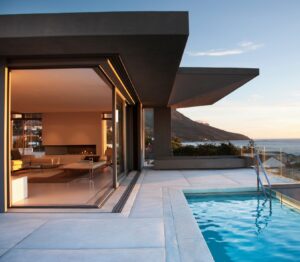What’s the point of investing in a swimming pool if you cannot enjoy it throughout the year? Choosing to install a pool heater is the first step in making the most out of your home’s swimming pool, but there are a few things to consider before calling a contractor for installation. To speak with experts about pool heaters in St. Augustine, call the friendly technicians at Climate Masters.
Choose an Efficient System for Greater Energy Savings
One important consideration you should make involves cost, and not only the cost of installation. An inefficient pool heater can cost you so much in monthly fees that you may end up using it quite sparingly, defeating the purpose of installing a heater in the first place. Ask your technician about different types of pool heaters: electric, gas-powered, and heat pumps. A heat pump pool heater is one of the most efficient ways to heat up a pool or even the air in your home because it simply moves heat from one place to the next instead of creating heat.
You Need Professionals to Size and Install Your System
Be sure to select professional installers with experience before hiring a company for installation. Pool heater installation is not a job for someone without the proper expertise. A heater that is too small will not get the job done, while a heater that is too large will cost you every month on your energy bills. With faulty installation, you may notice inadequate heating or a system that breaks down often.
Maintenance is Key to Efficiency and Performance
Finally, you should remember that owning a pool heater or any mechanical device means there is always a possibility for sudden breakdowns. Be sure to follow any steps of maintenance as instructed by the technician, and schedule maintenance with a skilled contractor every year. A thorough cleaning and inspection can keep your unit in top shape and reduce the standard wear and tear that develops throughout the years.
For maintenance, repairs, and installation, call Climate Masters. We offer a variety of pool heaters in St. Augustine to suit your particular sizing and efficiency needs.
Continue Reading
Tags: Pool Heaters, St. Augustine
Posted in Pool Heaters | Comments Off on A Few Considerations before Installing a Pool Heater









